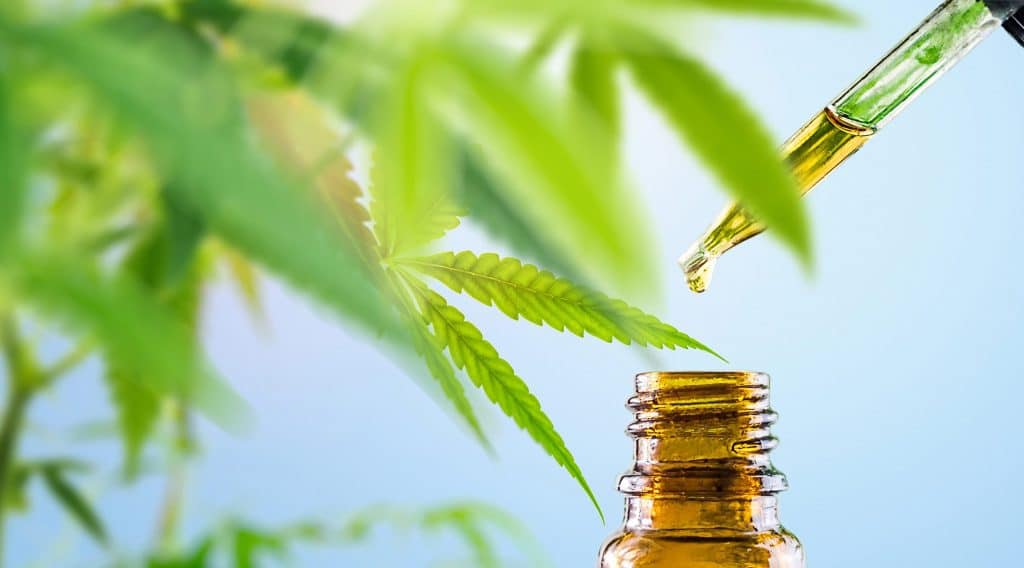Blog
CBD for Migraines: Understanding its Effects on Headache Relief and Prevention
Migraines are a debilitating condition that affects millions of people worldwide. As individuals search for alternative remedies, CBD has emerged as a potential option for migraine relief and prevention. In this blog, we delve into the effects of CBD on migraines, exploring its potential benefits, usage considerations, and the current state of scientific research. By understanding the relationship between CBD and migraines, individuals can make informed decisions and explore this natural approach to managing their migraine symptoms.
The Science Behind Migraines: Unraveling the Complexity

Migraines are complex neurological conditions that can be both mysterious and debilitating. In this section, we dive into the scientific understanding of migraines, exploring the underlying mechanisms and factors that contribute to their onset. Migraines are believed to involve various changes in brain chemistry and blood flow, leading to the characteristic throbbing headaches and accompanying symptoms. Imbalances in neurotransmitters, such as serotonin, play a role in regulating pain perception and blood vessel constriction. Additionally, triggers such as stress, hormonal changes, certain foods, and environmental factors can act as catalysts for migraine attacks. Understanding the intricate workings of migraines is essential to comprehend how CBD, with its potential anti-inflammatory and analgesic properties, may provide relief and support in managing this condition. By unraveling the complexity of migraines, we can gain insight into how CBD may interact with the underlying mechanisms and potentially offer a natural approach to alleviating migraine symptoms.
The Potential of CBD for Migraine Relief: Exploring the Research

CBD has gained attention as a potential option for migraine relief, and in this section, we delve into the existing scientific research to explore its potential benefits. Numerous studies have investigated CBD’s effects on migraines and have shed light on its anti-inflammatory, analgesic, and neuroprotective properties. These properties have the potential to alleviate migraine symptoms by reducing inflammation, mitigating pain signals, and protecting brain cells from damage. Additionally, CBD interacts with the endocannabinoid system, a complex network of receptors and neurotransmitters that regulates various bodily functions, including pain perception and inflammation. By modulating the activity of the endocannabinoid system, CBD may help restore balance and provide relief from migraines. However, it is important to note that while research on CBD and migraines is still evolving, the current findings offer valuable insights for individuals considering CBD as part of their migraine management strategy. Further research is needed to fully understand the mechanisms and potential efficacy of CBD for migraines, but the existing evidence suggests that CBD holds promise as a natural approach to alleviating migraine symptoms.
Choosing the Right CBD Product: Considerations and Best Practices

Choosing the right CBD product is a crucial step for individuals seeking relief from migraines. In this section, we provide valuable guidance on the factors to consider when selecting CBD products for migraine management. First and foremost, product quality is of utmost importance. Look for CBD products that undergo third-party lab testing, as this ensures safety and accuracy in terms of CBD content and the absence of contaminants. By choosing reputable brands that prioritize transparency and quality assurance, individuals can have confidence in the CBD products they use for migraine relief.
Another aspect to consider is the consumption method. CBD is available in various forms, including oils, capsules, and topicals. Each method has its unique characteristics and potential effects on migraine relief. CBD oil, when taken orally, offers fast absorption and systemic effects, which may be beneficial for acute migraine attacks. CBD capsules provide a convenient and consistent dosage option, while topicals, such as creams or balms, can be applied directly to the affected area for localized relief. Understanding the different consumption methods and their potential benefits can help individuals choose the most suitable option for their specific needs and preferences.
Proper dosing is also a key consideration. It is recommended to start with a low amount of CBD and gradually increase the dosage as needed. This allows individuals to assess their tolerance and gauge the optimal dosage for their migraine management. Consulting with a healthcare professional or a knowledgeable CBD specialist can provide further guidance on dosing and help ensure a safe and effective experience.
By understanding these considerations and best practices, individuals can make informed decisions when choosing CBD products for migraine relief. Prioritizing product quality, exploring different consumption methods, and implementing proper dosing strategies contribute to an individual’s ability to find CBD product that suits their needs and offers potential relief from migraines. Remember, every individual is unique, so it may require some experimentation and personalization to find the most effective CBD product and regimen for managing migraines.
Integrating CBD into a Holistic Migraine Management Approach
Migraines can be complex and require a comprehensive approach to management. CBD, with its potential therapeutic properties, can be a valuable addition to a holistic strategy for migraine relief. In this section, we explore how CBD can complement other lifestyle changes and therapies commonly used to manage migraines.
One crucial aspect of a holistic approach is addressing trigger factors. Identifying and avoiding triggers, such as certain foods, stress, or environmental factors, can significantly reduce the frequency and severity of migraines. CBD can play a role in managing stress, which is a common trigger for migraines. Its potential calming and anxiety-reducing effects may help individuals better cope with stressors and minimize the likelihood of migraines.
Maintaining a healthy lifestyle is another key element of a holistic migraine management approach. This includes regular exercise, adequate sleep, and a nutritious diet. CBD can potentially support these lifestyle changes by promoting relaxation, improving sleep quality, and modulating appetite. By incorporating CBD into a healthy routine, individuals may enhance their overall well-being and potentially reduce the occurrence of migraines.
Open communication with healthcare professionals is paramount in developing a personalized migraine management plan that includes CBD. Consulting with a knowledgeable healthcare provider can provide guidance on CBD dosage, potential interactions with other medications, and any specific considerations based on individual health conditions. By working collaboratively with healthcare professionals, individuals can ensure a well-rounded approach that maximizes the potential benefits of CBD while prioritizing their overall health and safety.
It is important to note that CBD should not be considered a standalone treatment for migraines but rather a complementary addition to a comprehensive strategy. By combining CBD with other evidence-based therapies, such as medication, stress management techniques, and relaxation exercises, individuals can create a multifaceted approach that addresses the various aspects of migraine management.
Integrating CBD into a holistic migraine management approach can be a promising avenue for individuals seeking relief. By complementing lifestyle changes, identifying triggers, and maintaining open communication with healthcare professionals, CBD can be utilized effectively as part of a comprehensive strategy. As with any treatment approach, it is essential to consult with healthcare professionals and tailor the management plan to individual needs. With careful consideration and a holistic mindset, CBD may offer potential benefits in the journey toward managing migraines and improving overall well-being.
Exploring the Potential of CBD for Migraines
CBD shows promise as a potential natural remedy for migraines, but it is important to approach its use with understanding and awareness. By delving into the science, research, product considerations, and holistic management strategies, individuals can navigate the potential benefits of CBD for migraine relief and prevention. While further research is needed to fully understand CBD’s effects on migraines, exploring this avenue may provide individuals with an additional tool in their quest for migraine management and improved quality of life.


